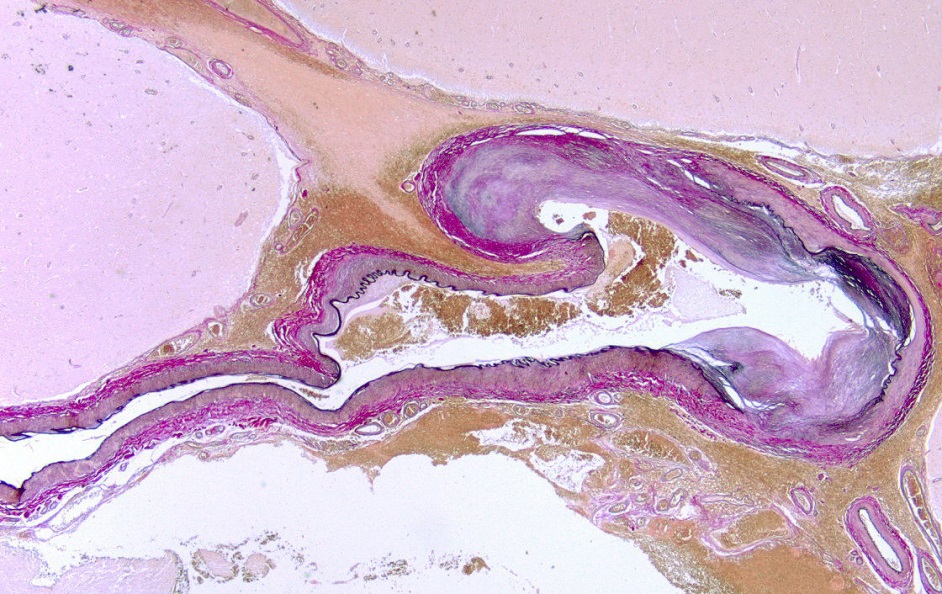
Brain UK study ref: 19/006,
Lay summary,
Project status: Active
Quantitative analysis of brain vascular pathology in cerebrovascular cases of the Corsellis Brain Collection
Prof Raj Kalaria, Newcastle University NHS Hospitals Trust
The West London NHS Trust has provided 240 cases of fixed brain tissue from the Corsellis Collection, a historic collection dating from 1950’s to the 1990’s which has now been disbanded. Newcastle will use the tissue to quantify the extent of brain vascular pathology in terms of the number and location of strokes of different sizes, small bleeds and large brain haemorrhages. We, specifically aim to address the following questions:
- Is the distribution of cerebrovascular changes (changes affecting the flow of blood through the brain) in the older Corsellis collection different from that in the more recent Newcastle collection from the Cognitive Function After Stroke (CogFAST) and Vascular Dementia (VaD) studies?
- What are the frequencies (and degree of artery narrowing) of intracranial atherosclerosis and arteriolosclerosis (the thickening and stiffening of the arteries due to the build-up of fats, cholesterol and other substances in and on your artery walls (plaque), which can restrict blood flow)? The comparison would be in brains from the Corsellis collection and the cerebrovascular cases (participants who have strokes and other brain and blood vessel conditions) in Newcastle, collected two decades later. This may relate to changes in discernible vascular health and lifestyle factors.
- Determine frequencies of cognitive impairment no dementia (individuals whose cognitive functioning falls below normal but who do not meet dementia criteria) and dementia cases in the Corsellis collection with those in the CogFAST and VaD studies to determine thresholds for dementia. The study will help us define the critical causes of brain vascular changes which cause dementia.
